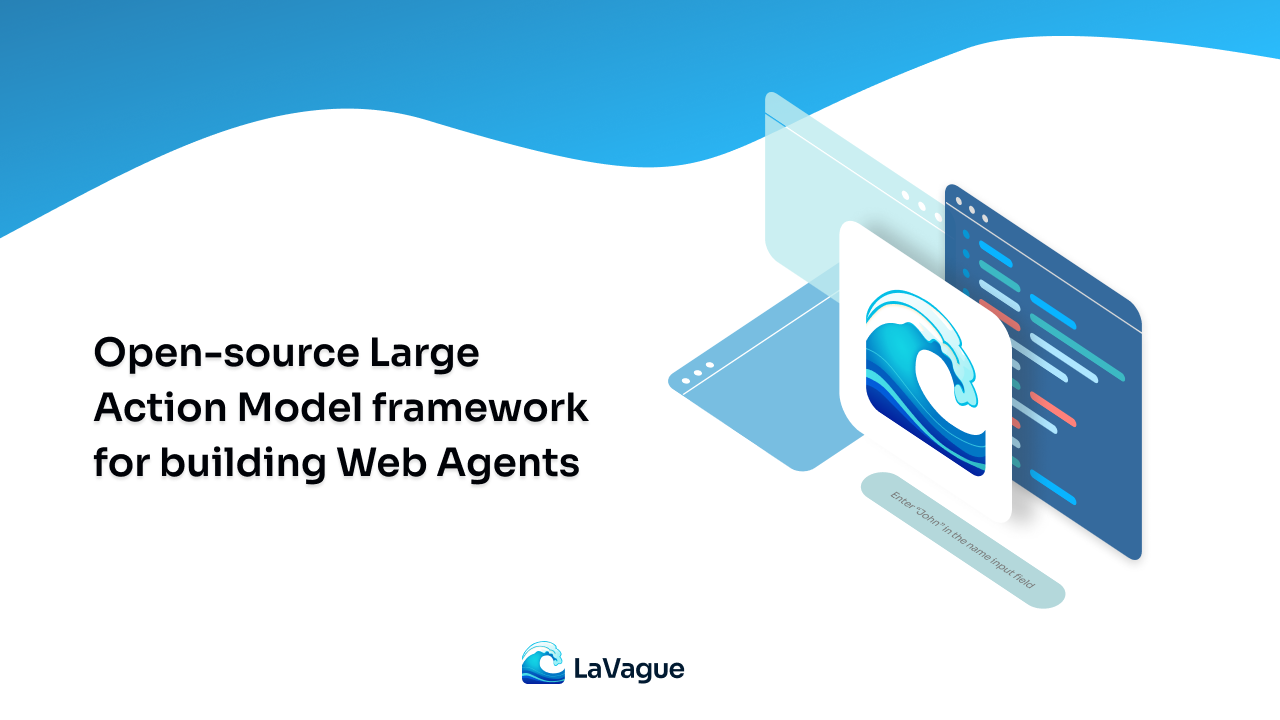
LaVague Weekly Update #3
Welcome to our third dev update, where we announce updates to the structure of our engines, a new local logging method, our next webinar and what is to come for our Large Action Model framework.
Welcome to our third weekly dev update!
Here’s what we’ve been up to this week...
📑 Added a local logger
We've added a local logger, which provides information about your agent run. This can be very handy for debugging. We will add more info on this in the docs soon, but for now - here is a quick notebook to show you how it works.
🚒 Wrapping all engines into the Action Engine
To avoid needing to pass a growing number of engines to your Web Agent, you now just need to initialize an Action Engine which will contain the:
- navigation_engine (formerly the ActionEngine - generates and executes Selenium code to perform actions on a web page)
- python_engine (generates and executes code for tasks that do not involve navigating a web page)
- navigation_control (performs frequently required navigation tasks without needing to make any extra LLM calls: scroll up, scroll down & wait)
🤗 Our First Webinar
We did our first webinar introducing the LaVague framework. If you missed it, you can catch it on our YouTube channel here.
🛤️ Coming soon
- A web Q&A end-to-end example which creates a pytest file based on LaVague-generated actions
- Documentation covering LaVague's architecture, key modules, a debugging guide & FAQ
- The launch of our Gradio interface for Web Agents
- An eval module for evaluating Action Engine performance
- Adding memory capabilities
- And more events!
📢 Help wanted
This week, we defined some key areas in which we'd love your help. Please check them out here and get in touch if you'd like to become a contributor!


